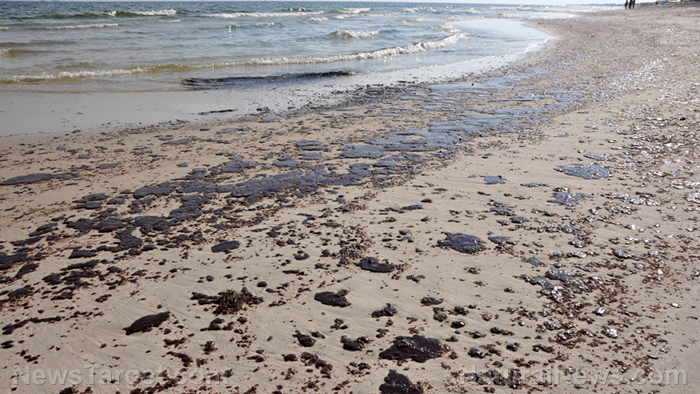 Parler
Parler Gab
Gab
Eating more leafy greens like spinach can help keep your body clean of dioxins
Based on these results, komatsuna, mitsuba, perilla, and spinach are the most effective green vegetables out of those tested for removing dioxins from the body. Researchers believe that the high chlorophyll content of these green vegetables plays a major role in this excretion activity. From day eight through day 35 in the study, similar benefits were seen from consumption of perilla, kale, and spinach. Those mice that consumed these green vegetables say fecal excretion of 2,3,7,8-T4CDD and 2,3,4,7,8-P5CDF that was 3.1-4.9 and 3.0-3.6 times higher, respectively, than the basal group. "The present results suggest that the green vegetables might be useful in treatment of humans exposed to PCDD and PCDF congeners," the paper's abstract concludes. Another study published that same year by the same researchers in the same journal looked more closely at the effects of chlorophyll compounds on dioxin absorption, arriving at similar conclusions. Mice fed a diet containing 0.5 percent disodiumprotoporphyrin (PPNa) experienced fecal excretion of 2,3,7,8-T4CDD and 2,3,4,7,8-P5CDF that was 2.1 and 1.9 times higher, respectively, than that of mice fed a control diet. Again, just be careful where you source your green vegetables. A study published several years later in the journal Chemosphere referenced these earlier studies, warning that green vegetables can absorb dioxins in their leaves and roots. "... the deposition of gaseous, presumably moderately volatile dioxins in leaf wax is another pollution pathway in addition to the adhesion of dioxin-contaminated particles including soil," that study explains. More information about how to protect yourself against chemical exposure naturally can be found at Medicine.news. Sources for this article include: Pubmed.ncbi.nlm.nih.gov NaturalNews.com Pubmed.ncbi.nlm.nih.gov Pubmed.ncbi.nlm.nih.govDr. Lee Merritt accuses federal government of lying about Ohio train derailment
By Kevin Hughes // Share
Studies show saffron can fight cancer and protects against chemotherapy-induced damage
By Ramon Tomey // Share
Examination of Japanese mermaid mummy yields surprising results
By Ramon Tomey // Share
Governments continue to obscure COVID-19 vaccine data amid rising concerns over excess deaths
By patricklewis // Share
Tech giant Microsoft backs EXTINCTION with its support of carbon capture programs
By ramontomeydw // Share
Germany to resume arms exports to Israel despite repeated ceasefire violations
By isabelle // Share










